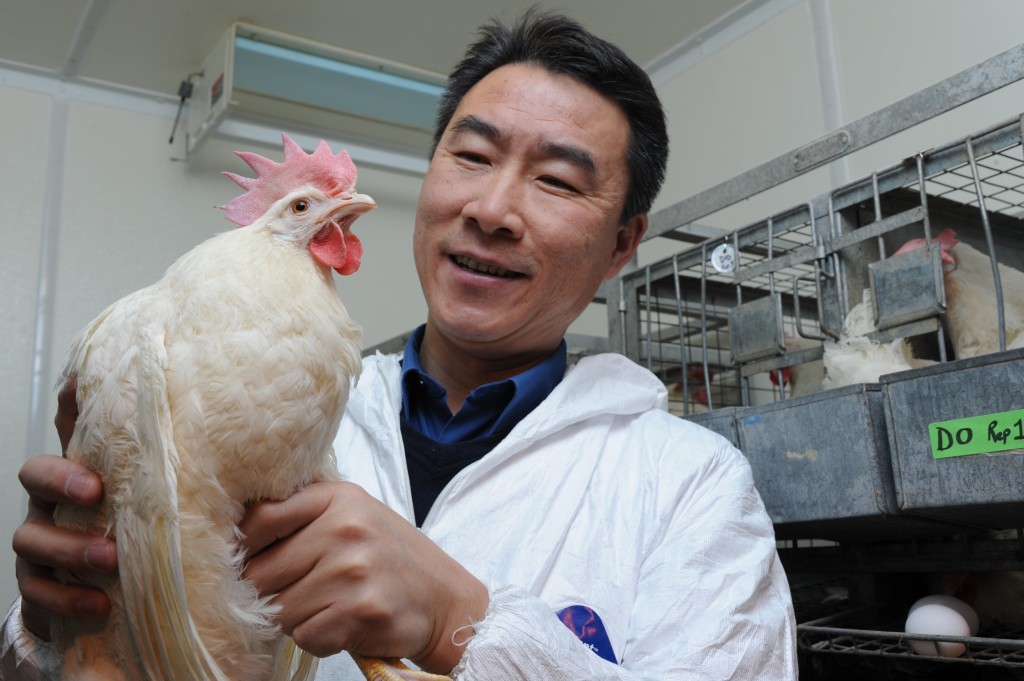
New Diets Reduce Ammonia, Improve Air Quality
Iowa leads the nation in egg production and processing with close to 60 million laying hens at 65 locations around the state. That many chickens produce a lot of ammonia-rich manure, which needs to be managed to protect air and environmental quality. A demonstration project that wrapped up field monitoring this spring shows promise in reducing the ammonia coming from those operations.
Hongwei Xin, agricultural and biosystems engineering professor who directs the Egg Industry Center, leads a research team that has been testing how two alternative diets affect ammonia output.
“Preliminary findings show about a 21 percent reduction from feeding a diet with 10 percent dried distiller’s grain with solubles (DDGS) and approximately 42 percent using a commercial feed additive called EcoCal,” Xin says.
The project has been underway for two years at three commercial barns with 255,000 hens in each. He says there have been no adverse effects on the bird’s performance or egg production and the cost of feeding is comparable to a standard diet. Data analysis follows the field monitoring portion of the study.
“The thought is the DDGS diet works because of its high fiber content. The ethanol by-product also is attractive because it is so plentiful in Iowa,” Xin says. “The EcoCal product is an acidifier that reduces the pH of the hens’ manure, which decreases the volatilization of ammonia.”
A side benefit of the alternative diets is that the manure appears to have a higher nitrogen content, making it more valuable as fertilizer.



